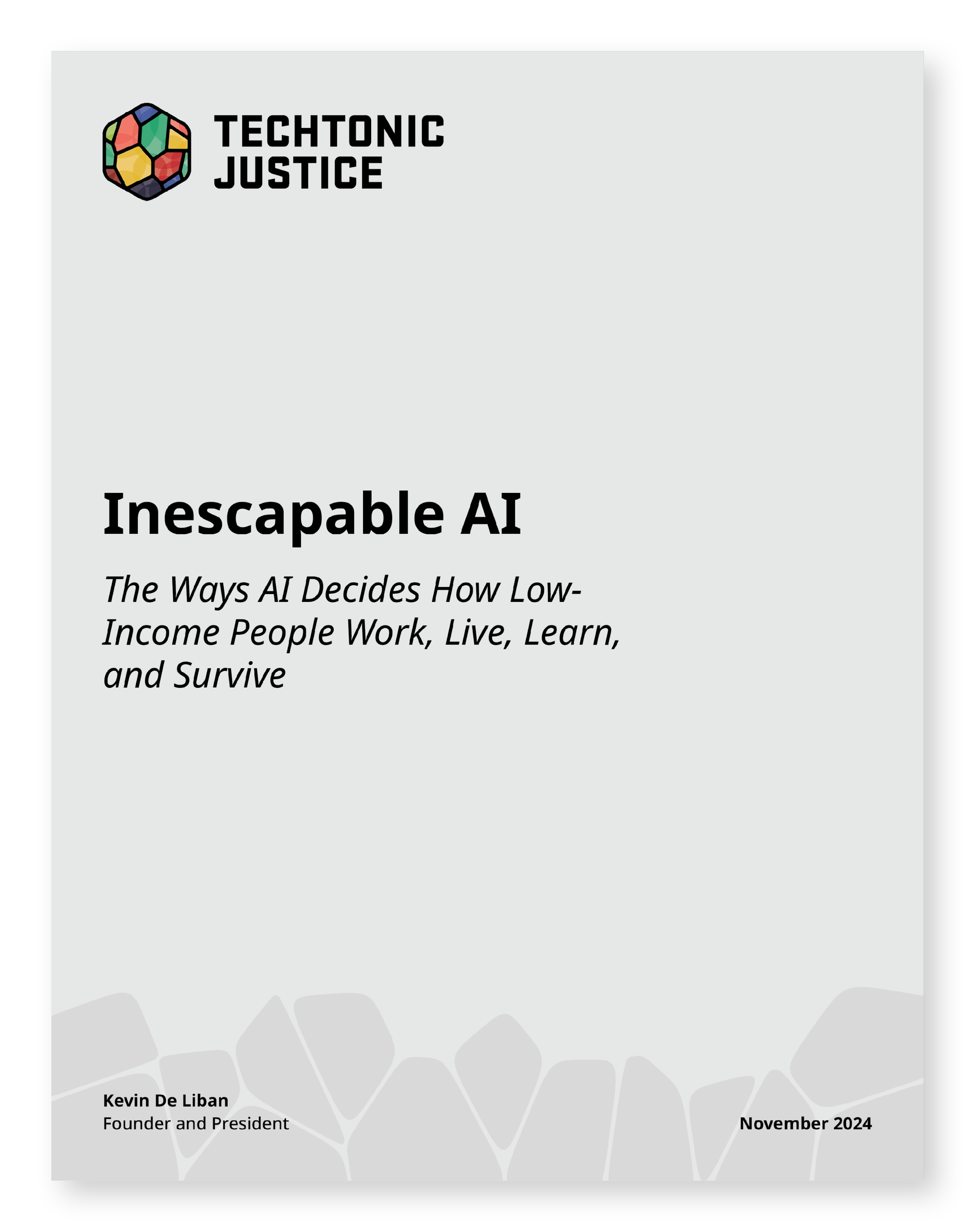
A multidimensional, community-based effort to strengthen local justice movements and build long-term power among the people and communities that AI is leaving behind.
Fighting ground-level AI harms
Fears about artificial intelligence aren’t just for a grim, imagined future. AI hurts people right now in many unfair ways with few chances to hold anyone accountable.
Government officials, business leaders, and other people in positions of power regularly use AI and related technologies to wrongly cut Medicaid and other public benefits, deny people housing, employment, or credit, take kids from loving parents, intensify domestic violence and sexual abuse or harassment, label and mistreat middle- and high-school kids as likely dropouts or criminals, and falsely accuse Black and brown people of crimes, all at scales and speeds impossible with analog methods.
TechTonic Justice resists the harms that AI inflicts on low-income people nationwide by supporting, coalescing, and catalyzing legal aid programs, their client communities, and other frontline organizations.
Inescapable AI
The Ways AI Decides How Low-Income People Work, Live, Learn, and Survive
The use of artificial intelligence, or AI, by governments, landlords, employers, and other powerful private interests restricts the opportunities of low-income people in every basic aspect of life: at home, at work, in school, at government offices, and within families. AI technologies derive from a lineage of automation and algorithms that have been in use for decades with established patterns of harm to low-income communities. As such, now is a critical moment to take stock and correct course before AI of any level of technical sophistication becomes entrenched as a legitimate way to make key decisions about the people society marginalizes.
Employing a broad definition of AI, this report represents the first known effort to comprehensively explain and quantify the reach of AI-based decision-making among low-income people in the United States. It establishes that essentially all 92 million low-income people in the U.S. states—everyone whose income is less than 200 percent of the federal poverty line—have some basic aspect of their lives decided by AI.
Featured Press
WBUR | On Point
March 13, 2025
Artificial Intelligence algorithms are being used to decide who gets welfare benefits, and how much. Some experts say it’s leading to “devastating” cuts in benefits for those most in need.
The Lever
February 21, 2025
As Trump leans into AI, automated systems are already ruining lives. A new organization is out to stop it.
NPR | Morning Edition
February 13, 2025
NPR's Steve Inskeep talks to Kevin De Liban, attorney and founder of TechTonic Justice, about how AI comes between Americans and their government.

TechTonic Justice founder Kevin De Liban has pioneered successful multidimensional advocacy strategies that win against unjust AI by blending litigation, community activation, public education, and media. Using this battle-tested model, TechTonic Justice will harness the strength of people on the ground to oppose unjust AI and those who insist on using it even where the harms are clear.







